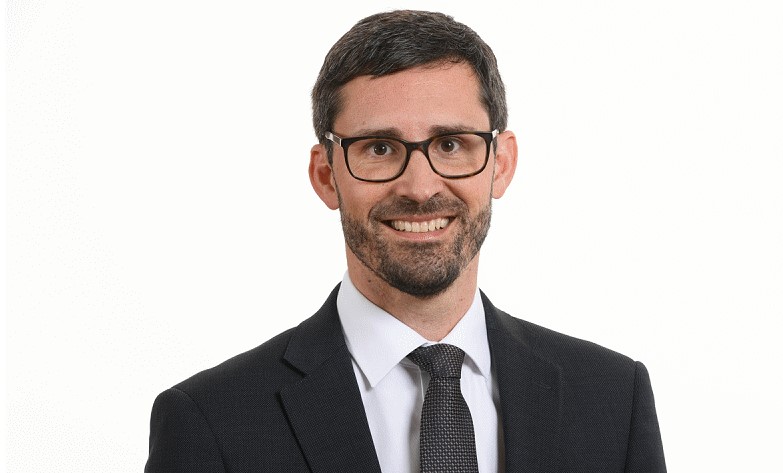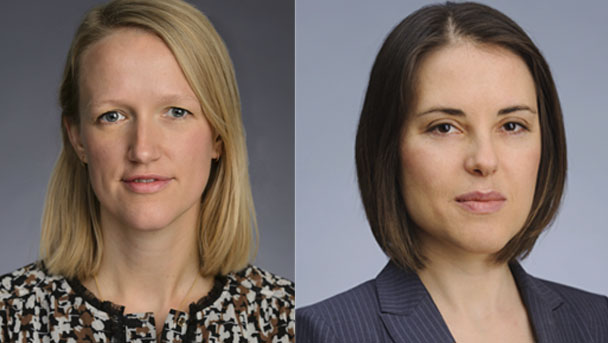
As active managers, Pictet Asset Management can collaborate with portfolio companies to trigger positive change. Mayssa Al Midani, Senior Investment Manager in the Thematic Equities team, shares her perspective on environmental and social engagement with food companies.
Can you tell us about your active engagement in nutrition?
We invest in firms that help address global food challenges, ensure the sustainability of the food chain and provide access to quality food necessary for health and growth. A key feature of our investment process is engagement: we work closely with the firms we invest in to improve their performance across environmental, social and governance factors.
To help us maintain a constructive dialogue with the firms we have stakes in, in 2018 we established a partnership with the Access to Nutrition Initiative (ATNI), a body which evaluates the world’s 25 largest food and beverage companies based on their contribution to ending malnutrition in all of its forms. Companies are assessed on the nutritional value of their products, their commitment to providing affordable nutrition and the responsibility of their marketing practices.
This year we are taking part as active investors in a collaborative engagement with three companies in our portfolio.
With other investors, we are writing to these companies, bringing to their attention the specific improvements ATNI research suggests they need to make. We have set a deadline for them to respond. Once we receive their answers, we’ll hold calls with the companies to discuss their responses.
We are only able to engage with Nestlé, Danone and China Mengniu since all other companies in the ATNI index aren’t even in our portfolio because they don’t meet what we call our ‘purity’ threshold, or the percentage of their revenues exposed to nutritious foods. Our definition of nutritious foods is based on what leading health and environmental NGOs classify as foods that optimise both human and planetary health.
Partnering with other asset managers representing several trillions of assets under management gives much more weight to our actions
What are the themes of your engagement with companies in the Nutrition portfolio?
Our objective is to encourage companies to grow the share of healthy products in their portfolio, increase affordability and accessibility for all consumers regardless of income levels, adopt best practice when it comes to the responsible marketing of products to children and commit to front-of-pack nutritional labelling.
We single out the products that do not fit our definition of healthy nutrition and then urge companies to either reformulate them to make them healthier (reduce sugar, fat, salt content, or enrich them with micronutrients), or divest these categories.
We also look closely at how food is marketed. For example, when it comes to the marketing of breastmilk substitutes, we have been calling on companies to comply with the World Health Organisation code for healthy marketing of such products. They may be the only viable nutritional substitute when mothers are unable to breastfeed but they must not be marketed too aggressively so exclusive breastfeeding remains a priority.
We also request that companies link these nutritional objectives to management compensation, which is a powerful way of aligning management interests with positive nutritional impact and ensuring that companies are serious about making these changes.

How did you choose this initiative ?
There is only so much we can achieve as a single entity.
Partnering with other asset managers representing several trillions of assets under management gives much more weight to our actions.
Within Pictet, what was initially an asset management initiative has broadened to our private banking arm, Pictet Wealth Management, making Pictet Group as a whole a signatory and supporter of this engagement.
Sustainable nutrition is an area of strategic importance for the Pictet Group – which is already active in the field of nutrition and water through the Pictet Group Foundation – that’s why we feel it makes sense to pursue a collaborative engagement at the group level and to partner with other investors to magnify our impact.
Have you noticed a change in how companies respond to engagement in the past few years?
Food and beverage manufacturers are paying greater attention to the topic of nutrition, for a number of reasons.
Minimising the impact of their activities on society and the environment has become a business imperative.
Public interest in health and sustainability has become so widespread it is something companies can no longer ignore. Millenials and Gen-z consumers are more health conscious and increasingly want to align their purchases with their values. They want healthy, nutritious food that is responsibly produced, and are willing to pay a price premium for this.
It has also become crucial to investors that the companies they invest in meet certain standards. More and more investment managers include ESG factors in their investment process. Regulation such as the EU’s SFDR mandating greater transparency on the sustainability profiles of investment funds will only accelerate that trend.
Public interest in health and sustainability has become so widespread it is something companies can no longer ignore
What has been the effect of Covid-19?
COVID-19 has shed light on the link between poor diets and vulnerability to infectious disease. In particular, studies have shown a strong link between obesity and COVID-19. Governments like the UK have started to implement policies targeting malnutrition as a response to the pandemic. This heightened awareness of the importance of healthy diets is fueling the growth of the functional foods markets (e.g. probiotics, supplements) and that of healthy alternatives such as plant-based foods.
Another effect of the pandemic has been to highlight the threat to food security caused by disruptions in complex global supply chains. In response, we are seeing the food industry investing heavily in a wide range of high-tech solutions, many of which are geared to strengthening supply chains, raising production standards and reducing food waste.
To help us better understand these trends, our portfolio managers draw on the support of a dedicated advisory board, whose members are experts from different areas of the food industry. Among them is a medical practitioner whose research activities focus on the link between non-communicable diseases such as obesity and diabetes and nutrition. Another is a food scientist, formerly the head of innovation, technology and R&D at Nestlé. They bring a different, science-based perspective and help ensure that our investment theme remains relevant.
To find out more about our collaborative initiatives and our corporate engagement, read our Responsible investment report.
Discover more about Pictet Asset Management’s long expertise in thematic investing.
Information, opinions and estimates contained in this document reflect a judgment at the original date of publication and are subject to risks and uncertainties that could cause actual results to differ materially from those presented herein.
Important notes
This material is for distribution to professional investors only. However it is not intended for distribution to any person or entity who is a citizen or resident of any locality, state, country or other jurisdiction where such distribution, publication, or use would be contrary to law or regulation.
The information and data presented in this document are not to be considered as an offer or sollicitation to buy, sell or subscribe to any securities or financial instruments or services.
Information used in the preparation of this document is based upon sources believed to be reliable, but no representation or warranty is given as to the accuracy or completeness of those sources. Any opinion, estimate or forecast may be changed at any time without prior warning. Investors should read the prospectus or offering memorandum before investing in any Pictet managed funds. Tax treatment depends on the individual circumstances of each investor and may be subject to change in the future. Past performance is not a guide to future performance. The value of investments and the income from them can fall as well as rise and is not guaranteed. You may not get back the amount originally invested.
This document has been issued in Switzerland by Pictet Asset Management SA and in the rest of the world by Pictet Asset Management (Europe) SA, and may not be reproduced or distributed, either in part or in full, without their prior authorisation.
For US investors, Shares sold in the United States or to US Persons will only be sold in private placements to accredited investors pursuant to exemptions from SEC registration under the Section 4(2) and Regulation D private placement exemptions under the 1933 Act and qualified clients as defined under the 1940 Act. The Shares of the Pictet funds have not been registered under the 1933 Act and may not, except in transactions which do not violate United States securities laws, be directly or indirectly offered or sold in the United States or to any US Person. The Management Fund Companies of the Pictet Group will not be registered under the 1940 Act.
Pictet Asset Management (USA) Corp (“Pictet AM USA Corp”) is responsible for effecting solicitation in the United States to promote the portfolio management services of Pictet Asset Management Limited (“Pictet AM Ltd”), Pictet Asset Management (Singapore) Pte Ltd (“PAM S”) and Pictet Asset Management SA (“Pictet AM SA”). Pictet AM (USA) Corp is registered as an SEC Investment Adviser and its activities are conducted in full compliance with SEC rules applicable to the marketing of affiliate entities as prescribed in the Adviser Act of 1940 ref.17CFR275.206(4)-3.
Pictet Asset Management Inc. (Pictet AM Inc) is responsible for effecting solicitation in Canada to promote the portfolio management services of Pictet Asset Management Limited (Pictet AM Ltd) and Pictet Asset Management SA (Pictet AM SA).
In Canada Pictet AM Inc is registered as Portfolio Manager authorized to conduct marketing activities on behalf of Pictet AM Ltd and Pictet AM SA.










